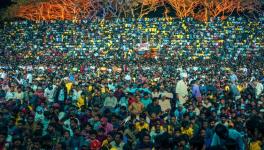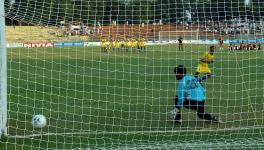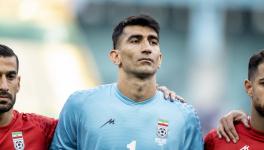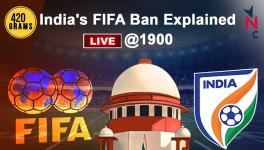Why Super Cup is Stupid Despite Quality Football
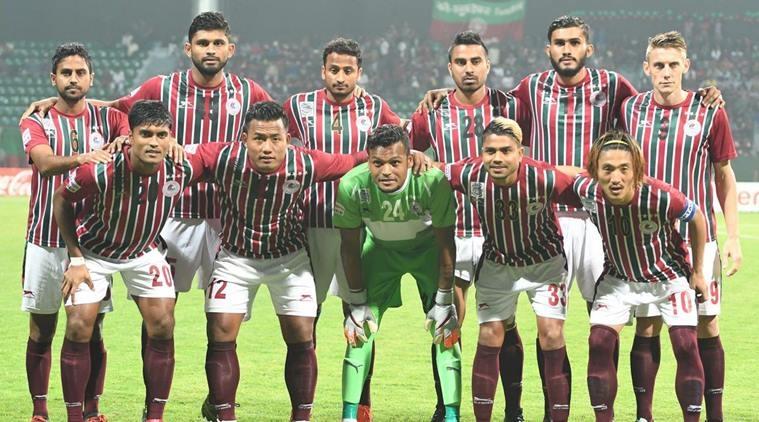
Image Courtesy: The Indian Express
The myth has been broken. The ISL isn’t the first among equals. The cash-rich Indian Super League isn’t the superior of the country’s two domestic leagues. East Bengal have taken a step into the semi-finals (with an injury time winner over Aizawl FC), and, with Mohun Bagan scheduled to take on Shillong Lajong later tonight, it means that half the semi-finalists of the inaugural Indian Super Cup will be from the I-League. The number could yet rise to three, if NEROCA beat Bengaluru in the last quarterfinal on April 13.
The champions of the I-League, Minerva Punjab FC, and the champions of the ISL, Chennaiyin FC, are both out—hard to say which was the bigger shock, but if we take into account team budgets, one can safely assume Jamshedpur were favourites against Minerva. Whoever wins the Super Cup now, will—well, at the very least—end a confusing season with a trophy. And, as of now, that could be anybody.
No one can criticise the quality of football on display at the Super Cup. This is cup football at its best. Nervy, edgy, the scales tilted in favour of the underdog for the simple reason that they go out there with nothing to lose. But, criticism must be levelled towards the scheduling of this, ultimately, useless competition. The Super Cup is a competition without context. Players and coaches will undoubtedly talk about how it enables teams to end their season on a high, the truth is there was no need for this.
Its basic premise—teams from the I League take on teams from the ISL—is glorious. And with smarter scheduling, it could’ve possibly been the tournament of the future. Instead we are left wondering why teams have travelled all the way to Bhubaneswar, at the end of a gruelling five-month season, to play in humid conditions, for a trophy that has little reward. Winning the Super Cup doesn’t guarantee a continental place (like the Federation Cup used to in the old days).
This tournament has actually replaced the Federation Cup in many ways. In the days before the ‘Super Club’, the cup tournament was the stage for second-division teams to write themselves into national headlines. Teams like Punjab Police and Vasco would frequently beat a higher, much more fancied, opponent to throw the tournament in disarray.
In many ways, the Super Cup qualifiers were more exciting than the tournament itself. The bottom four clubs of both leagues battled it out for four spots in the tournament. Only one ISL club registered a victory in regulation time (Atletico Kolkata beat Chennai City 4-1). The biggest shocker (also the match with the highest attendance in those stages) was the youth development team, Indian Arrows, pushing Ranbir Kapoor’s Mumbai City FC to extra time, before finally losing out.
All of this is, of course, great vieweing, but it has caused a fair bit of chatter outside the field. Jamshedpur FC’s coach Steve Coppell was fairly critical of the fact that teams were playing extra time in these conditions at the end of a long season. His statements came after Jamshedpur and Minerva played out a stalemate in regulation time. It was the kind of game, where, after the first half, you could visibly see the players’ suffering. In extra time, players cramped over, water breaks were frequent and the threat of injury was foremost on everyone’s mind. It was an old fashioned slugfest—Ali vs Frazier perhaps—played in a seaside town in the tropics. To paraphrase Gabriel Garcia Marquez, the air was so damp that fish could’ve come in through the stadium doors and swum out through the rafters.
Two days earlier, Aizawl FC had played a similarly bruising encounter, taking the ISL champions Chennaiyin FC to penalties before winning 5-3. Then, they travelled back to Aizawl to host Bengaluru FC in an AFC Cup tie. Bengaluru’s travails weren’t different. They played against Gokulam Kerala on April 1, and then travelled to Aizawl.
If tight scheduling was one end of the spectrum, at another end was the lack of match practice. Kerala Blasters opened their campaign against NEROCA FC, a whole month after they had played their final game of the season.
All of this is strange, and off-pitch distractions often get the better of Indian football. At the end of a turbulent and sputteringly exciting season, where we’ve seen some serious drama, one would’ve hoped for clearer minds to have prevailed.
Get the latest reports & analysis with people's perspective on Protests, movements & deep analytical videos, discussions of the current affairs in your Telegram app. Subscribe to NewsClick's Telegram channel & get Real-Time updates on stories, as they get published on our website.










